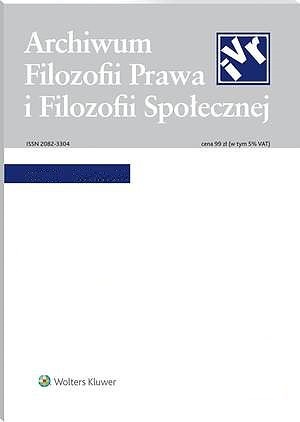Law & Economics as a Theory of Decision Making in Legal Contexts – Decision Theoretical Foundations, Their Misinterpretations and Excessive Claims of Economic Analysis of Law
Law & Economics as a Theory of Decision Making in Legal Contexts – Decision Theoretical Foundations, Their Misinterpretations and Excessive Claims of Economic Analysis of Law
Author(s): Magdalena MałeckaSubject(s): Law, Constitution, Jurisprudence, Philosophy of Law, Law on Economics, Philosophy of Law
Published by: Stowarzyszenie Filozofii Prawa i Filozofii Społecznej – Sekcja Polska IVR
Keywords: law & economics; theory of decision making; legal norm
Summary/Abstract: The article treats law & economics as a proposal of a theory of decision making in legal settings. It is emphasized that the distinction between two approaches in economic analysis of law: the neoclassical and the behavioral one, is made with reference to two different theories of decision making applied in the realm of each approach. The neoclassical approach is based on the theory of expected utility, whereas the behavioral one – on prospect theory. According to the scholars on both sides, application of decision theory might be helpful in influencing behavior by legal norms in a more sophisticated way. The claim of the article is that law & economics scholars misinterpret the assumptions and propositions of the theories and/or formulate excessive claims, if they argue that decision theoretical findings provide knowledge about the way in which people’s decisions are influenced by law.
Journal: Archiwum Filozofii Prawa i Filozofii Społecznej
- Issue Year: 4/2012
- Issue No: 1
- Page Range: 34-50
- Page Count: 17
- Language: English

